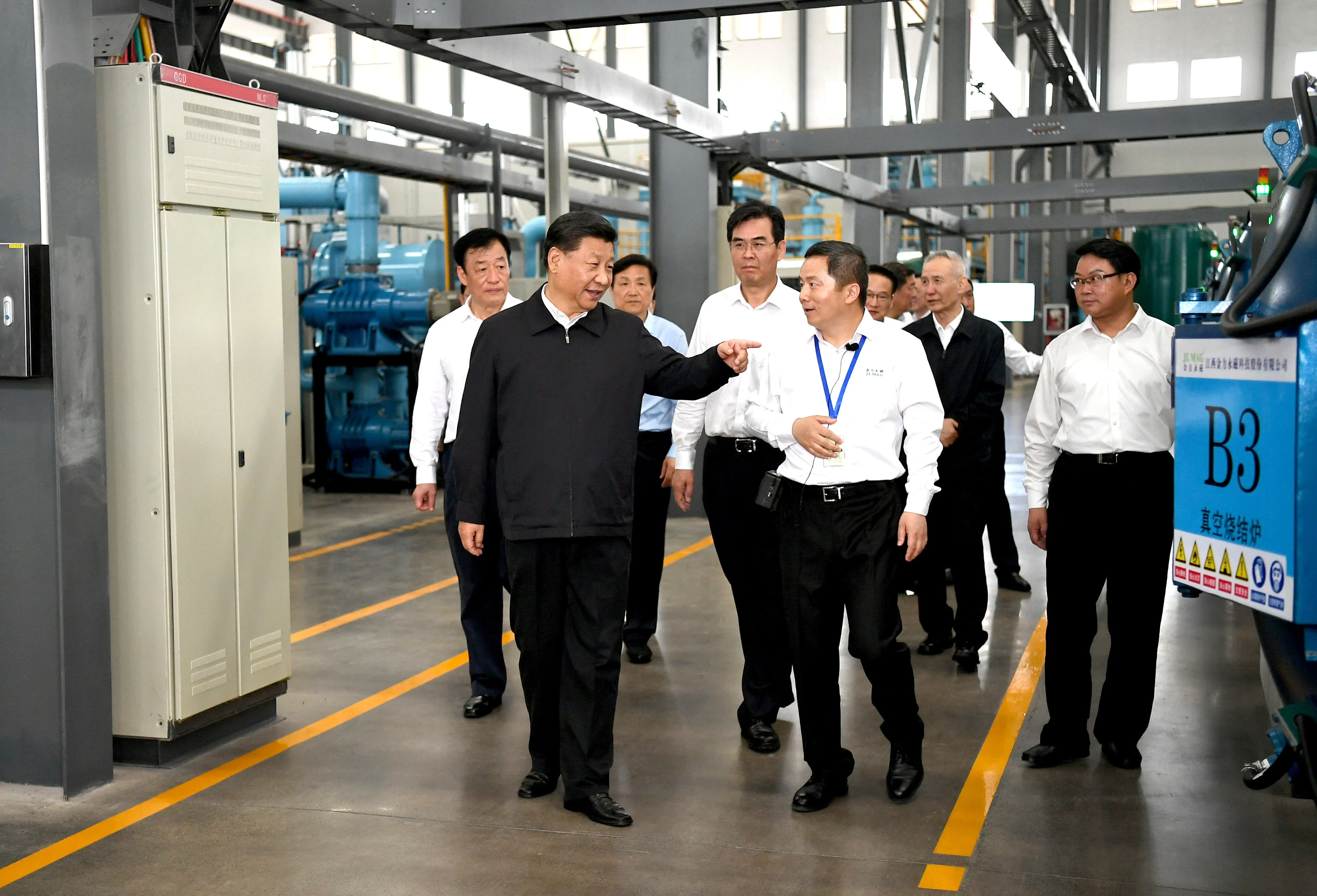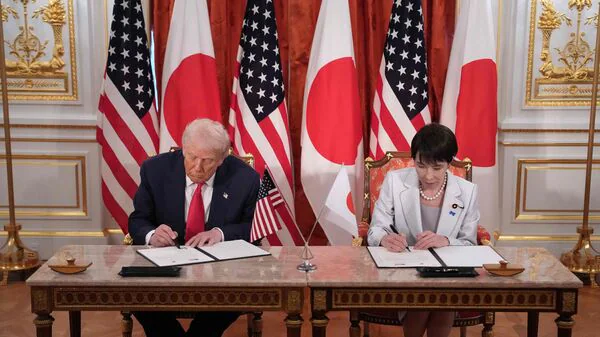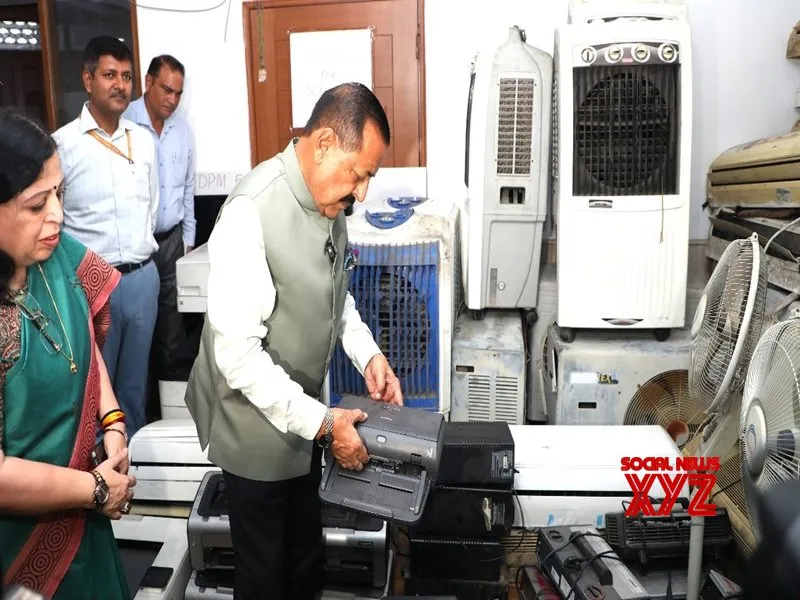Copyright scmp

President Xi Jinping is expected to meet with his US counterpart, Donald Trump, on the sidelines of the Asia-Pacific Economic Cooperation (Apec) summit later this month. Regardless of how the summit might go, don’t count on China walking back its recently announced export controls on rare earths. Beijing might consider increasing supplies for civilian industries if the US rolls back its own escalatory policies following the trade truce brokered in Geneva, Switzerland earlier this year. The US is likely to make enough compromises to keep its artificial intelligence (AI) bubble from bursting. However, it will reignite the economic war on China as soon as it can’t get enough rare earths for its weapons industry. While China has slapped retaliatory tariffs on American goods, introducing US-style extraterritorial controls on rare earth products and technologies represents the first major counter-attack by China over the course of the trade war. Initially, China was focused on addressing vulnerabilities by reducing its reliance on exports to the US market. But now, Chinese leaders are going on the offensive. The US has played all its cards. Its goal has been to weaken China without inflicting too much damage on itself. Whenever it finds such an opportunity, it will take it. This is why Washington breaks agreements. Escalation is built into US policy. However, this strategy has a limited shelf life, which we’re beginning to see. The US economy has been about bubbles and weapons for decades, propped up by the US dollar’s role as a reserve currency. The US is a debt superpower that sustains itself with bubbles while suppressing competing centres of wealth. US leaders are hedging their bets on AI development and a tech war aimed at stifling China’s growth. Those aspirations and that war effort are in a precarious position. The US’ AI bubble is quite vulnerable. No matter how much investment manages to boost revenue, generative AI is in a delicate situation. China’s rare earths restrictions don’t help, which is why I believe Trump will compromise at the Apec summit. However, any truce will be short-lived. China might increase the level of supplies for civilian sectors in the US, such as the automobile industry. But it’s not likely to drop controls that prevent leakages to the US military. Wars in Ukraine and Gaza have severely depleted Washington’s weapons stockpile. The US needs large quantities of rare earth minerals, for which it has long depended on China. From Beijing’s perspective, why would it want to help Washington make weapons when US policymakers keep hinting at the prospect of a war over Taiwan? At any rate, expect the US to lash out again before the year is out. Sooner or later, one of Trump’s blunders will pop the AI bubble. Could the US or its allies dig up and refine their own rare earths? It’s possible but not likely in the foreseeable future. In 2010, after Japan detained Chinese fisherfolk near the Diaoyu Islands after a collision, China reportedly threatened to stop supplying rare earths to Japan until it released them. Ever since, Japan has invested in its domestic rare earth capacity, with some success. The US has also stepped up investments in rare earth mining. Nonetheless, China is responsible for most of the world’s advanced rare earths refining; any other alternative will take years. China is also ahead when it comes to refining purity. Others might catch up, but it will take a while. China’s near-monopoly on rare earths might mirror the country’s history as the global centre of fine porcelain. In the 16th century, fine porcelain was highly desired in Europe. The Chinese were able to sustain temperatures at 1,300 degrees Celsius in the porcelain kilns by burning wood. Some Europeans attempted to reverse engineer the product, leading to some successes by the 18th century. Of course, figuring out how to refine rare earth minerals may not take another two centuries. I’d argue 20 years would be a conservative number. By then, the world will be a different place. Perhaps, we will have figured out how to live together in peace. For now, the US might be banking on the fact that rare earth elements can be derived as by-products of mass industrial production. For example, gallium is a by-product of aluminium production. Graphene, which is used in anode materials for batteries, can be produced from coal. One needs the right industries and technology to collect rare earths as by-products. Here too, China has an edge, producing large amounts of both aluminium and coal. China’s dominance in rare earths comes from its rich natural endowment in mineral deposits, technologies accumulated over multiple decades and a considerable scale in nearly all basic industries. The West’s underestimation of China’s power and dominance in rare earths is honestly just one example. The West will struggle for decades to find alternatives. The West has developed a hostile attitude towards China out of fear. That hostility has pushed China to discover and signal the depths of its power to limit what Western countries can do. If the West still doesn’t recognise Chinese power and accommodate accordingly, what you can count on is more global instability.



